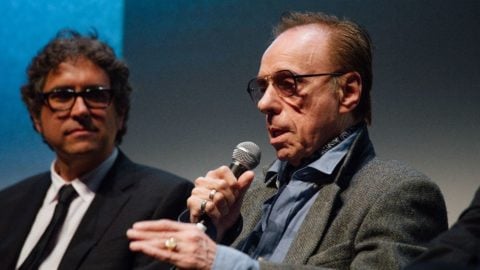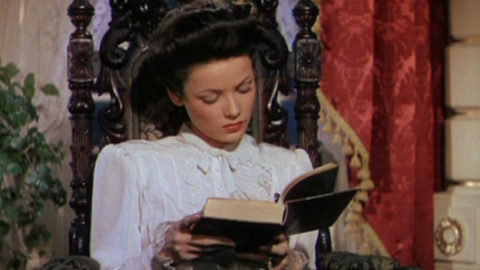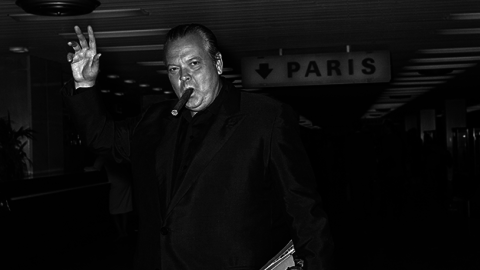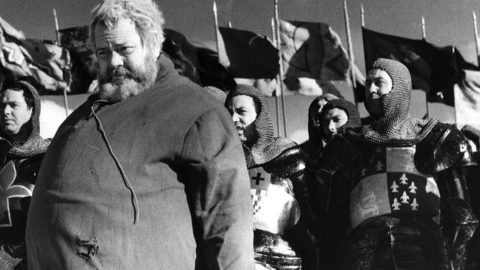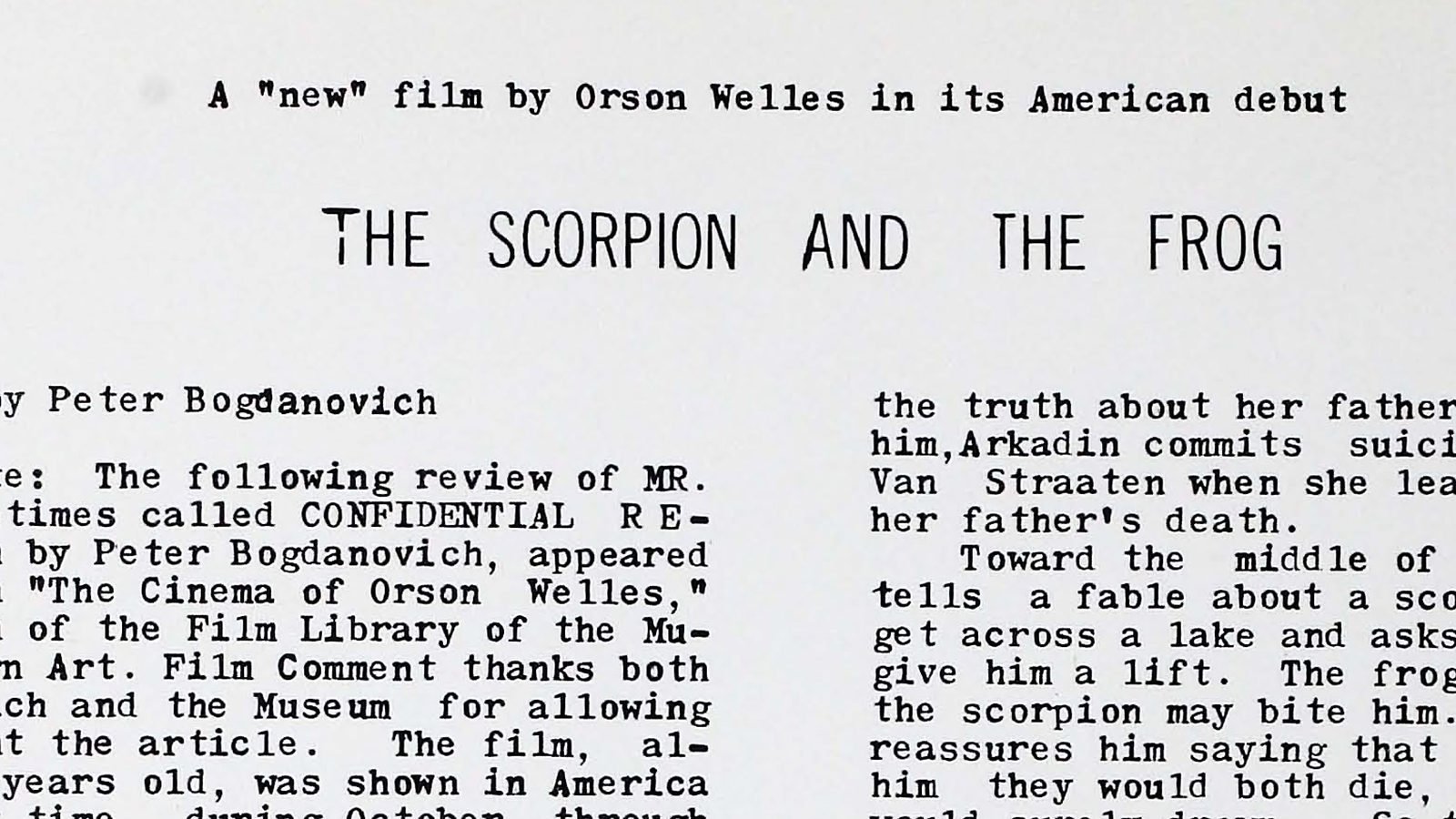
The Scorpion and the Frog: Orson Welles’ Mr. Arkadin
Editor’s note: The following review of Mr. Arkadin (sometimes called Confidential Report) written by Peter Bogdanovich, appeared originally in “The Cinema of Orson Welles,” a publication of the Film Library of the Museum of Modern Art. Film Comment thanks both Mr. Bogdanovich and the Museum for allowing us to re-print the article. The film, although seven years old, was shown in America for the first time, during October, through the efforts of Dan Talbot, the resourceful and imaginative owner and operator of the New Yorker Theatre, in New York City.
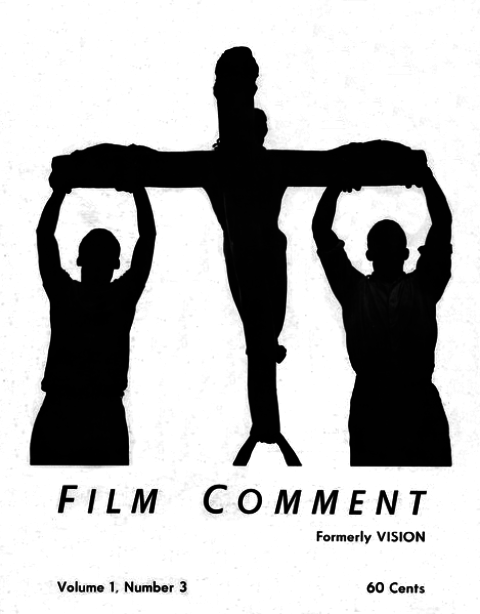
PART ONE: by Peter Bogdanovich
1955 Mr. Arkadin (Confidential Report) (Warner Bros.). Directed by Orson Welles; produced by Louis Do1ivet; original screenplay by Welles; photography by Jean Bourgoini; music by Paul Misraki; decor and costumes designed by Welles; edited by Renzo Lucidi. Re1eased in Great Britain: September, 1955; 99 minutes. Cast: Welles, Paola Mori, Robert Arden, Michael Redgrave, Patricia Medina, Akim Tamiroff, Mischa Auer, Katina Paxinou, Peter Van Eyck, Suzanne Fion.
This film, Welles said, has been butchered more than any of his works, and it looks it. Originally told through a complex flashback technique developed and expanded from Citizen Kane, the distributors have tried to put it into chronological order, which is somewhat like starting Kane with his birth and ending with his death. This so violates Welles’s dramatic conception that one must be extremely well-acquainted with his style to approximate what the picture looked like when he finished it.
Confidential Report (the British release title) concerns an almost mythical, fantastically wealthy financier, Arkadin, who hires Guy Van Straaten, a cheap young American smuggler, to prepare a confidential file on his, Arkadin’s, activities before 1927. Claiming to have forgotten his past, he fears it was shady and wants it concealed from his daughter, Raina, whom he loves with possessive passion. Van Straaten proceeds to gather information from various people—a tailor in Zurich, a flea-trainer in Copenhagen, a fence masquerading as an antiquary in Amsterdam, a Polish baroness—and discovers that Arkadin began his career as a member of a white slave gang run by the baroness. No sooner has Van Straaten found the necessary information than Arkadin’s emissaries begin to kill off the people who could implicate their boss. Van Straaten soon realizes he too is on the list, and flies to tell Arkadin’s beloved daughter the truth about her father. Failing to stop him, Arkadin commits suicide, but Raina leaves Van Straaten when she learns that he caused her father’s death.
Toward the middle of the film, Arkadin tells a fable about a scorpion who wants to get across a lake and asks a passing frog to give him a lift. The frog refuses, thinking the scorpion may bite him. But the scorpion reassures him saying that if he were to bite him they would both die, for the scorpion would surely drown. So the frog agrees and they start across the lake. In the middle of their journey, however, the scorpion does give the frog a fatal sting. As they are going under, the frog asks the scorpion why he had done it since now he too was to die. And the scorpion answers, “I know, but I can’t help it, it’s in my character.” Welles has developed this theme clearly from Shanghai through Arkadin into Touch of Evil and as he himself describes it: “The point of the story is to show that a man who declares himself in the face of the world, I am as I am, take it or leave it, that this man has a sort of tragic dignity. It is a question of dignity, of verve, of courage, but doesn’t justify him. The story serves a dramatic purpose but is not meant to justify Arkadin or to assassinate him.
“Arkadin uses barbarian intelligence for profit. He is a barbarian in conquest of European civilization. But only the morality of Arkadin is detestable. It is impossible to detest anyone who is passionate. Arkadin is a parasite who feeds off the corruption of the universe. He never seeks to justify himself; he is a Russian adventurer. Arkadin created himself in a corrupted world; he doesn’t try to better that world, he is a prisoner of it.”
This was the first Welles script since Citizen Kane to be based on his own story. It continues and elaborates the depiction of an evil and disintegrating world begun in The Lady from Shanghai (except that by now, even the frog, O’Hara before, is corrupt). The photography and what remains of Welles’ original editing mark it as perhaps Welles’ most ambitious film to date.
PART TWO: by Gordon Hitchens
Of course, even bad Welles is absorbing cinema; but how can one so praise a filmmaker without sounding condescending? The point is that Welles has here a film that holds one’s interest continually and yet is disappointing and embarrassing. This film is all technique and bravura and theatricality, but is utterly lacking in significance. It is a kind of decadence, with over-decorated sets, over-busy camera, over-characterized characters from Welles’ grab-bag of international types. Because this is a “personal” film, so called, we expect a chaste and trembling virgin, but instead we find the mechanical passion and tired tricks of the over-rouged street-walker.
Welles has written here a vehicle for himself. His bass tones, twelve octaves deeper than anything Gregory Peck can reach, reverberate in our bowels, and we would be impressed by him were he speaking nonsense syllables or reading the Yonkers telephone book. Welles’ magnificent voice gives spurious, super-charged profundity to words that alone are lightweight. Such a voice needs a masterful writer of the epic stamp—Shakespeare, Marlowe, or Melville (see the New York press regarding Welles’ adaptation of “Moby Dick” which opened on Broadway during December). Such talent, and so little substance—small wonder that we are embarrassed.
Welles has here the undeveloped modicum of a major film. He is fascinated by the financial world’s equivalent of himself—the lone, cold-hearted, versatile, and manipulate titan bursting with energy. The trouble is that Welles cannot organize his intuition to a coherent comment. His Tamburlaine of high finance is never seen in relationship to his wealth. Arkadin is a tycoon, we are told, who uses governments as pawns of an ironic chess game, but we do not sense him as a diabolical wizard. He does not illuminate the processes of corporate domination of national policy. His Arkadin remains merely a wealthy private citizen. We hear that superb voice tell us that Arkadin’s death toppled a government, but we don’t see the claim fulfilled. In the same way, we are told that Arkadin is a formidable sensualist, but we don’t witness anything on the screen that would yield this extra dimension to the man’s character: his high-class call-girls are disposed about the frame as decorative props to illustrate the theme but are not seen in relationship to the man’s appetites. This film like others from Welles, is strangely asexual and, indeed, anti-sexual. The protagonist in these works is invariably isolated from even basic, elemental sexual contacts.
A further word about the story situation: the starting point of the film is “character,” particularly the parable of the scorpion and the frog. Dialogue is unrelieved irony. There is no genuine menace, only off-screen maneuverings to which on-screen characters react. The film’s central anecdote is leavened with humor, but the predominant tone is serious and rather trivial. Like Citizen Kane, the format is the re-construction of a personality via the dossier. Exposition accumulates, but we remain unenlightened. There is simply a succession of “scenes” in which assorted eccentrics postulate master-criminal ethics that Welles associates with the absurdist universe. Characters are one-dimensional types who talk while toying symbolically with appropriate to their calling, e.g., fleas, cards, antiques, and so forth. The labyrinthine psychological processes misfire because there is no labyrinth. Various “donnees” are offered us, e.g., Arkadin loves his daughter, but we cannot accept such premises without authentication; from this, it follows the conclusions are dramatically invalid.
Welles’ fundamental mistake in this film—and it may be the mistake that explains his entire career—has to do with Arkadin’s supposed “tragic dignity,” to use Welles’ term (see Bogdanovich, preceding). Tragedy is a word much maligned in our time of a democratic application of its meaning to every pathetic situation that occurs in life (“Tragedy Strikes on State Highway: Twelve Chickens Killed As Truck Overturns”). Tragedy has to do with much more than “character,” frogs, and scorpions. Tragedy has to do with wasted goodness and a strong character actuated by selfless, noble impulses identified with his own image. A tragic character is concerned with ultimate law informing us of Man, not simply of men as commonly individualized (in this case by Welles’ Hallowe’en disguise). Tragic grandeur is awesome and mighty. Such figures are not private integers having no relation to their society, but rather are deliberate testers and discoverers of life’s necessities. Such men are committed, perhaps irrationally, to some ethical standard outside of themselves, and this commitment presupposes a degree of optimism, an impulse toward perfectibility. In the Who’s Who of tragedy—Ahab, Lear, Oedipus, et al—it is worse than pretentious to include the name of Arkadin. If film is content to be regarded as merely a secondary art, then let us be satisfied with such melodramas as this all atmosphere and pulpy philosophy; but if film would aspire to the stature of dramatic literature then let it enlarge our awareness through work that achieves true tragic dignity.



